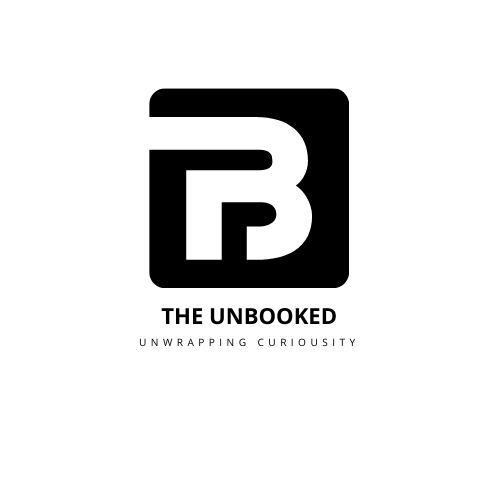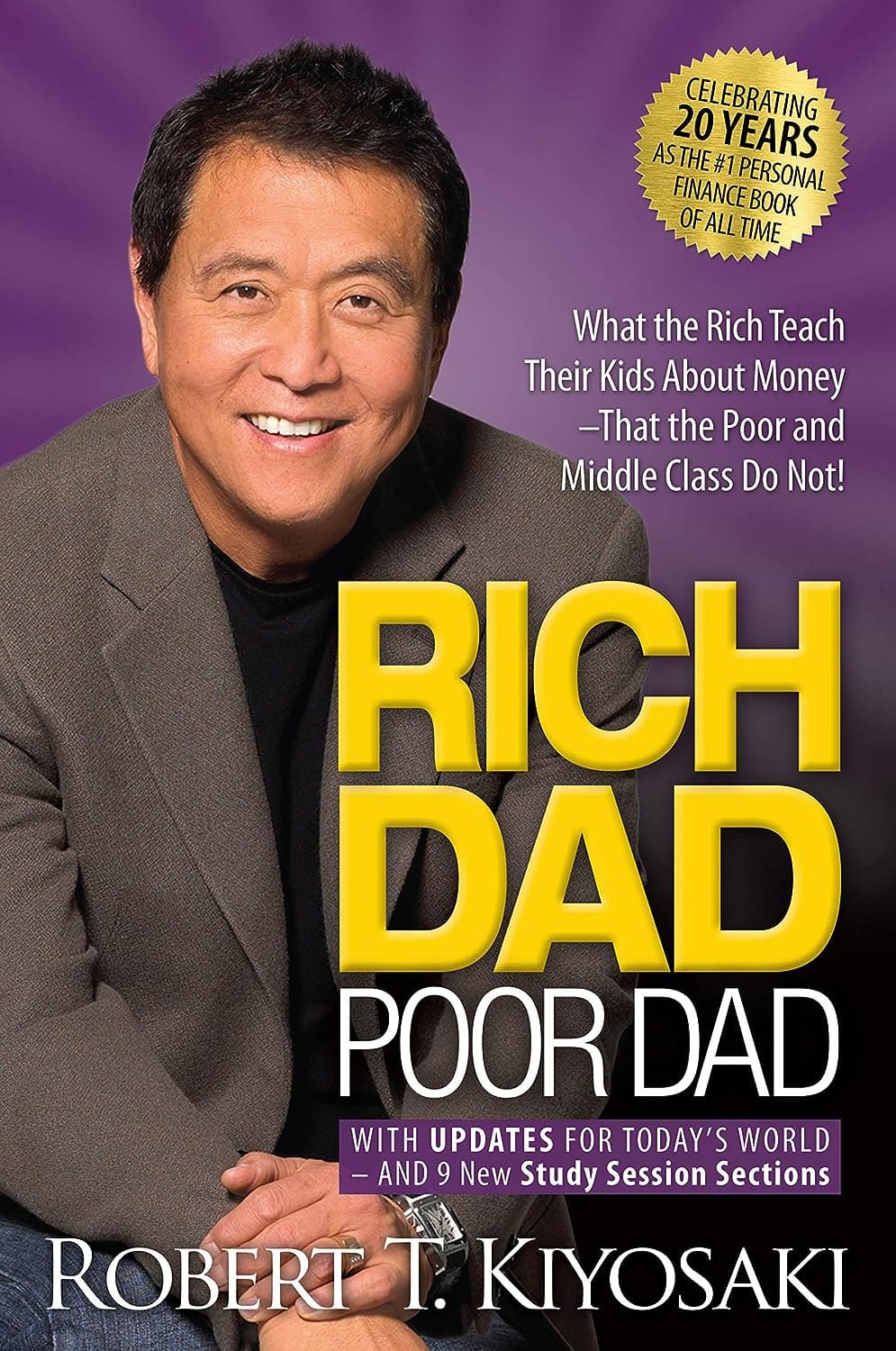In the world of personal finance literature, few books have had the impact and longevity of Robert Kiyosaki’s “Rich Dad Poor Dad.” First published in 1997, its principles remain relevant and potent even as we step into 2024. As we navigate through the ever-changing landscape of financial literacy, revisiting the core lessons of “Rich Dad Poor Dad” can provide invaluable insights into building wealth and achieving financial independence.
1. Understanding the Mindset Shift: Embracing a New Perspective on Wealth
At its core, “Rich Dad Poor Dad” emphasizes a fundamental mindset shift towards money and wealth. Kiyosaki contrasts the perspectives of his biological father (Poor Dad) and the father of his best friend (Rich Dad) to illustrate the importance of financial education and the power of passive income. The book challenges traditional notions of wealth and encourages readers to adopt a more entrepreneurial mindset, where financial independence is not merely a distant dream but a tangible goal within reach.
2. Embracing Financial Education: The Key to Unlocking Prosperity
One of the key takeaways is the significance of continuous learning about money and investments. In a world where financial literacy is not taught in schools, taking the initiative to educate oneself becomes paramount. The book advocates for seeking knowledge through books, seminars, and real-world experiences. In 2024, with rapid technological advancements and evolving economic landscapes, staying informed and adaptable is more critical than ever in securing one’s financial future.
3. Assets vs. Liabilities: Building a Solid Financial Foundation
Kiyosaki introduces the concept of distinguishing between assets and liabilities—a fundamental principle for building wealth. Assets put money in your pocket, while liabilities take money out. Understanding this difference is crucial for making sound financial decisions and growing your wealth over time. In today’s dynamic economy, where consumerism and debt often loom large, mastering the art of asset accumulation and debt management is essential for achieving long-term financial stability.
4. The Power of Passive Income: Creating Streams of Financial Freedom
“Rich Dad Poor Dad” emphasizes the importance of generating passive income streams that allow money to work for you, rather than solely relying on earned income from a job. Whether through investments in real estate, stocks, or businesses, passive income provides financial stability and freedom. In the digital age of 2024, where online businesses and digital assets offer unprecedented opportunities for passive income generation, embracing diversified income streams is key to weathering economic uncertainties and achieving financial abundance.
5. Overcoming Fear and Taking Risks: The Path to Financial Growth
The book encourages readers to overcome the fear of failure and to embrace calculated risks. Building wealth often requires stepping out of one’s comfort zone and taking strategic actions that may involve uncertainty. Learning to manage and mitigate risks is a crucial skill on the path to financial independence. In a world where volatility and unpredictability are constants, cultivating resilience and embracing risk as a catalyst for growth is essential for thriving in today’s competitive financial landscape.
6. Leveraging Debt Wisely: Navigating the Terrain of Financial Leverage
Contrary to conventional wisdom, “Rich Dad Poor Dad” suggests that not all debt is bad. Kiyosaki emphasizes the importance of using debt strategically to acquire income-producing assets that can generate positive cash flow over time. Understanding the difference between good debt and bad debt is essential for financial success. In an era where access to credit is easier than ever, exercising prudence and discernment in leveraging debt can pave the way for sustainable wealth accumulation and financial prosperity.
7. The Importance of Entrepreneurship: Fostering Innovation and Creativity
Entrepreneurship emerges as a central theme in “Rich Dad Poor Dad.” Kiyosaki encourages readers to think like entrepreneurs, whether they are self-employed or seeking to build scalable businesses. Entrepreneurial mindset fosters creativity, innovation, and resilience in the face of challenges. In 2024, where technological disruption and global connectivity continue to reshape industries, embracing an entrepreneurial spirit is not only a pathway to financial success but also a catalyst for driving positive change and innovation in society.
8. Building Financial Intelligence: Empowering Minds for Wealth Creation
Financial intelligence goes beyond traditional measures of success. It involves understanding financial statements, tax strategies, and the nuances of investment vehicles. “Rich Dad Poor Dad” advocates for developing a high level of financial intelligence to navigate the complexities of the modern financial world. In an age of information overload and financial complexity, honing financial literacy skills empowers individuals to make informed decisions, seize opportunities, and safeguard their financial well-being in an ever-evolving economic landscape.
9. Cultivating Discipline and Persistence: Sustaining Momentum on the Journey to Success
Achieving financial freedom requires discipline and persistence over the long term. Kiyosaki underscores the importance of setting clear financial goals, staying focused, and persevering through setbacks and obstacles along the journey. In today’s fast-paced world, where instant gratification and distractions abound, cultivating discipline and resilience are indispensable qualities for achieving meaningful progress and lasting success in pursuit of financial independence.
10. Teaching Financial Literacy: Empowering Generations for a Brighter Future
In an increasingly interconnected world, imparting financial literacy to future generations becomes crucial. “Rich Dad Poor Dad” advocates for parents and educators to take an active role in teaching children about money management, investing, and entrepreneurship to empower them for a financially secure future. As we invest in the financial education of the next generation, we sow the seeds for a more prosperous and equitable society, where individuals have the knowledge and tools to thrive in an ever-changing economic landscape.
FAQ
1. Is “Rich Dad Poor Dad” available as a PDF?
Yes, it is available in rich dad poor dad PDF format, making it accessible to readers across various digital platforms.
2. Can I listen to Rich Dad Poor Dad audio book?
Absolutely! this book is widely available as an audiobook, allowing listeners to absorb its valuable lessons on the go.
3. What is the Rich Dad Poor Dad summary?
In essence, it is a personal finance classic that contrasts the mindsets and financial philosophies of two father figures. It emphasizes the importance of financial education, passive income, and entrepreneurship in achieving wealth and financial independence.
4. What are some reviews of “Rich Dad Poor Dad”?
“Rich Dad Poor Dad” has garnered praise for its straightforward approach to personal finance and its ability to inspire readers to rethink their attitudes toward money and wealth accumulation.
5. How can “Rich Dad Poor Dad” help me in 2024?
In 2024, the principles outlined in in this book remain as relevant as ever. These offer timeless insights into building wealth, achieving financial independence, and navigating the complexities of the modern financial landscape.
As we reflect on the enduring impact of this masterpiece, it becomes clear that its teachings extend far beyond mere financial management—they serve as a blueprint for creating a life of abundance, fulfillment, and freedom in 2024 and beyond.

